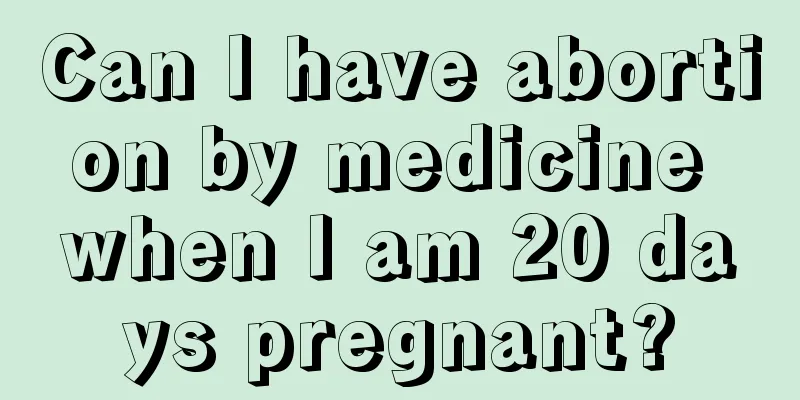Can artificial insemination lead to ectopic pregnancy?

|
Many people do not know much about ectopic pregnancy and think that artificial insemination will not cause ectopic pregnancy. In fact, it is not true. Artificial insemination is just a different way for sperm to enter the mother's body, but it will eventually combine with the egg through the fallopian tube. However, the final fertilization location is still determined by the mother, so artificial insemination will not rule out the possibility of ectopic pregnancy. This article introduces the specific content about this aspect, let’s take a look. 1. Will artificial insemination lead to ectopic pregnancy? Artificial insemination is a method of artificially injecting male semen into the female cervix or uterine cavity to assist conception. Mainly used for male infertility. There are two types of artificial insemination: artificial insemination between spouses and artificial insemination between non-spouses. From the perspective of the mechanism and indications of artificial insemination, although the sperm enters the uterine cavity through artificial methods after artificial insemination, it still needs to combine with the egg in the fallopian tube for fertilization. Artificial insemination may affect ectopic pregnancy. Artificial insemination and normal pregnancy are just different in the fertilization method, but artificial insemination cannot avoid or reduce the occurrence of ectopic pregnancy. People with financial resources can choose hospitals with good technology and services. At least choosing a regular and professional hospital can ensure the success rate of in vitro fertilization and reduce the chance of ectopic pregnancy. 2. Symptoms and hazards of ectopic pregnancy Before tubal pregnancy miscarriage or rupture, symptoms and signs are not obvious. In addition to short-term amenorrhea and pregnancy symptoms, sometimes there is bloating and pain in one side of the lower abdomen. During examination, the fallopian tubes may be normal or enlarged. Except for interstitial pregnancy, which lasts for a longer period of time, most cases of amenorrhea last for 6-8 weeks. Generally, symptoms such as abdominal pain and vaginal bleeding occur after amenorrhea. However, about 20% of patients complain of no history of amenorrhea. Abdominal pain is the main symptom of patients when they seek medical treatment. Abdominal pain is caused by many factors, including fallopian tube enlargement, rupture, and blood irritating the peritoneum. When rupture occurs, the patient suddenly feels tearing pain in one side of the lower abdomen, often accompanied by nausea and vomiting. Vaginal bleeding After the death of the embryo, there is often irregular vaginal bleeding, which is dark brown in color and small in amount, generally not exceeding the amount of menstruation, but it is spotty and not clean. Syncope and shock due to acute intra-abdominal bleeding can cause decreased blood volume and severe abdominal pain. Mild cases often experience syncope, while severe cases experience shock. |
<<: Will postpartum fluid affect pregnancy?
>>: What happens if pregnant women have frequent uterine contractions?
Recommend
Amniotic fluid index standard and precautions for 36 weeks of pregnancy
Our male friends may not be very familiar with th...
What is the difference between "sartan" and "sartan plus thiazide" in antihypertensive drugs?
A friend left a message to Huazi, saying that he ...
What causes acne on the face during pregnancy?
Most women will get acne when they are pregnant. ...
Beware! The "fourth high" after the "three highs" is quietly coming. Have you been infected?
In recent years, the prevalence of hyperuricemia ...
What to eat to supplement hair loss during breastfeeding
In order for the baby to grow healthily, most mot...
National Science Popularization Day | Milk traffic lights, entrance options
Milk is rich in nutrients, has a suitable composi...
Foods that people with high blood lipids should avoid
Hyperlipidemia is a chronic metabolic disease tha...
Why do I have chest pain during my period?
Generally speaking, breast pain before menstruati...
What is wax gourd? What is the growth period of wax gourd?
Wax gourd has the benefits of clearing heat, reli...
What should I eat if my menstrual flow is heavy and there are blood clots?
Heavy menstrual flow accompanied by blood clots i...
How much weight gain during pregnancy is normal?
During pregnancy, as the test tube embryo implant...
What women fear most is that their hair becomes sparse
The traces of time quietly appear at the corners ...
How long can ovulation be delayed?
Women's ovulation period, like their menstrua...
What are the ways for girls to maintain their appearance?
Everyone knows that women are the most beauty-lov...
What to eat during menstruation to lose weight
Losing weight is a very common thing nowadays. Th...









